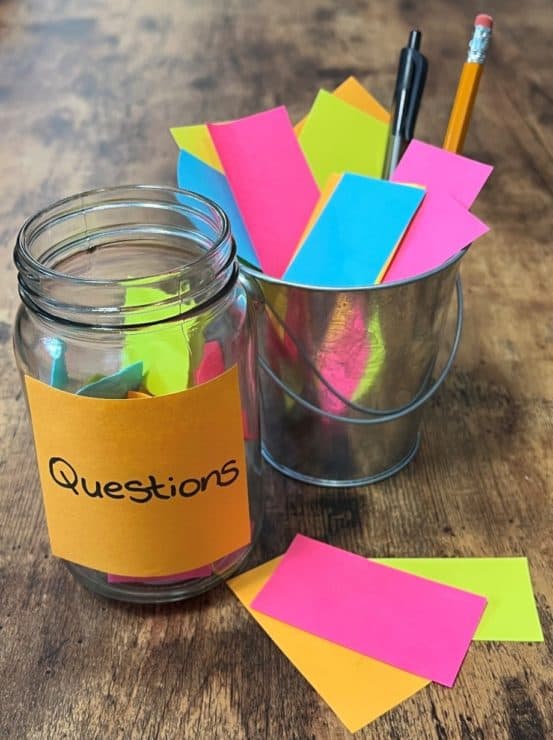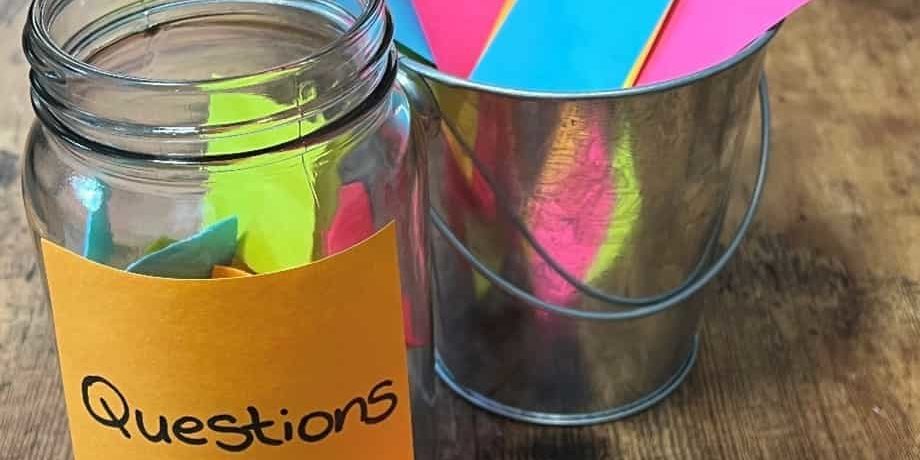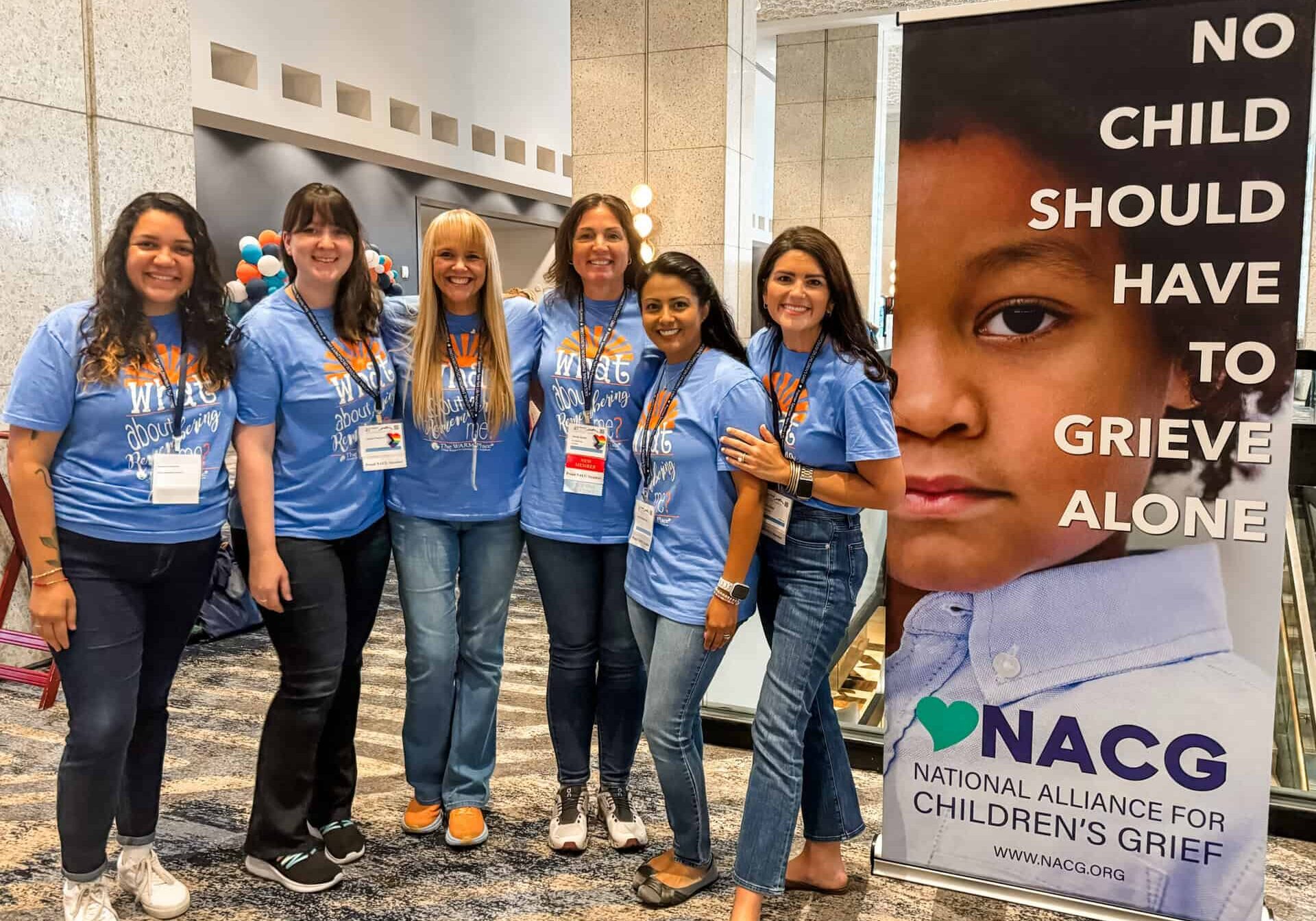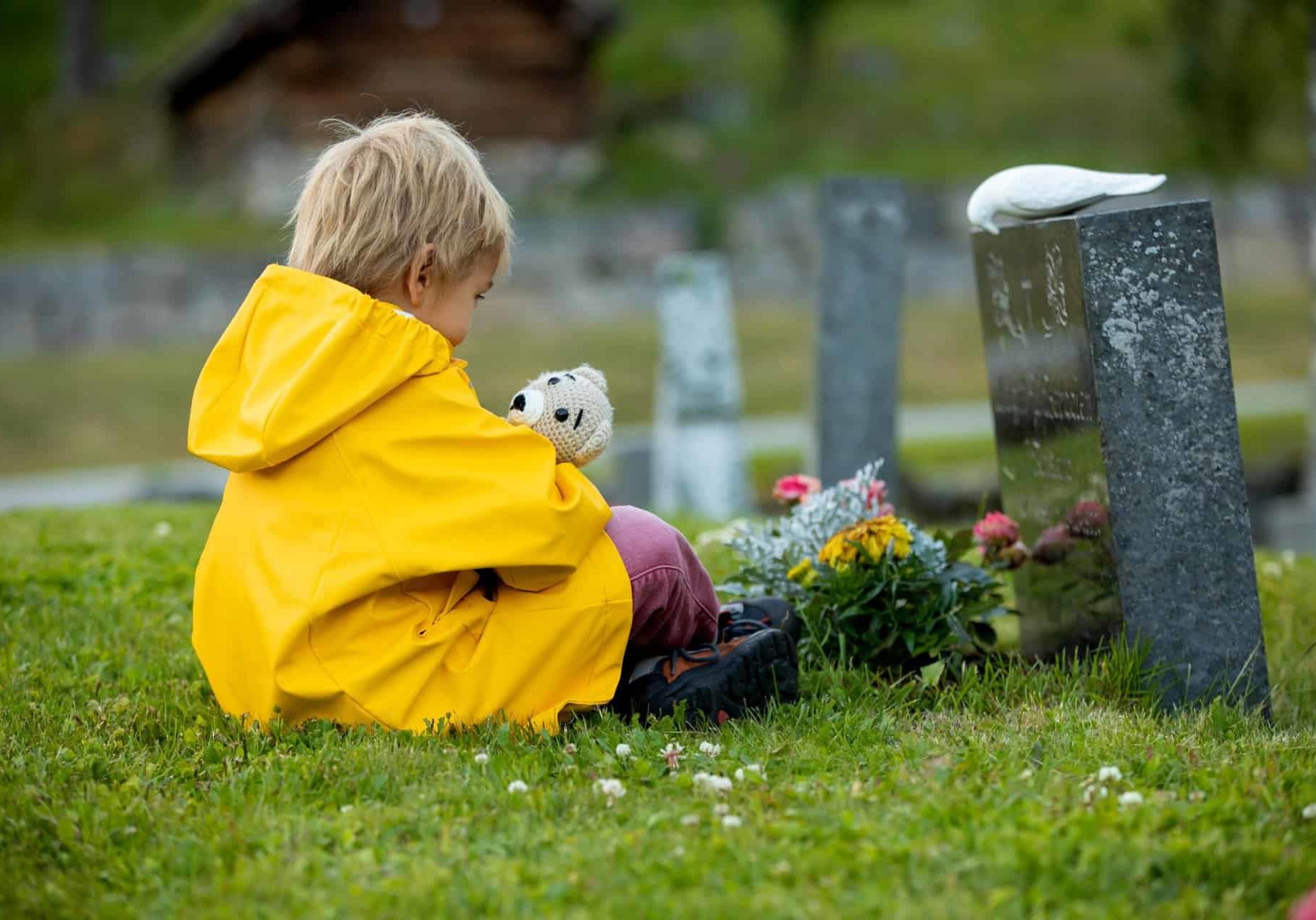After the death of a loved one, many questions may follow, and it can be difficult to navigate. As a parent, keeping the lines of communication as open as possible can help facilitate support and create a safe space to explore difficult feelings, worries, and hopes. There are many ways to explore unanswered questions or things your children may be wondering about. For example, creating a special journal that can be passed between parent and child, making a drawing booklet to include worries and wonders, or making a family question jar. Finding what works best for your family can help open the door to better understanding and connection.
Over the past month, many of our older groups at The WARM Place have participated in an activity called “Write Your Own Questions.” This activity is designed to help facilitate a discussion about their grief journey and give them an anonymous platform from which they may ask the group different questions. The group members can choose to identify themselves as the one that posed the question, or they may remain anonymous. Each person can select one or several slips of blank paper to write down their questions. Group members write down questions they have about grief in general, their experience with their personal loss and/or about others’ grief experiences. After each person writes down their questions, they put all their questions in a basket. The facilitator reviews the questions and chooses questions to ask the group. This activity offers an opportunity to explore things they have been wondering or thinking about as well as to connect with others. It is comforting to be surrounded by others who can relate to what they have been through and to feel safe to share without judgement.
“Write Your Own Questions”
Here a few of the great questions that brought about valuable discussions:
What is one thing you think your loved one would be proud of if you told them recently?
What do you wish for in the future?
What emotions did you feel?
How did your expectations of yourself change?
How do you cope?
What is one thing you wish you could tell your loved one?
Do you want to make your loved one proud of you?
Do you fear forgetting the memories made with your loved one?
How does it feel to know there are other people that know what you go through?
Has anyone dreamed about their loved one that died?

Family Question Jar
Supplies: small slips of paper, jars, writing utensils, and a small basket or pail.
If you would like to create a similar activity as a family, you could make your own question and answer jars at home. You can make just one jar labeled “Questions” or you can create two jars with one labeled “Questions” and the other labeled “Answers.” You can also include a small basket or pail to keep all the slips of paper and writing utensils near your question jar.
Family members can add questions to the jar at their own pace or as questions come up. You can set aside a time to discuss the questions individually or together as a family. Another option is to have each family member read the questions in the question jar and write their answer on the back and then put it in the answer jar. There are many ways to modify this activity to what works best for your family. The idea is to get the conversation started and to continue to keep the lines of communication open in a creative way.



